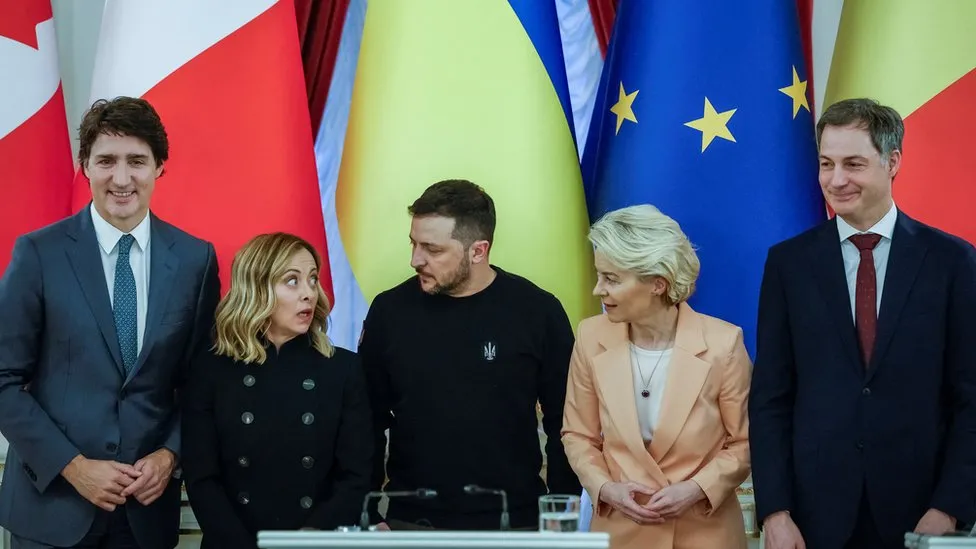

When the widow of the Russian dissident Alexei Navalny addressed the European Parliament recently, she said something striking. “If you really want to defeat Putin, you have to become an innovator,” Yulia Navalnaya told MEPs. “And you have to stop being boring.”
Being innovative and interesting may be traits not always associated with some European politicians.
But they are having to think differently, not just about how better to support Ukraine but also to increase pressure on Russia.
The shadow of a potential Donald Trump presidency hangs over the continent, raising doubts about America’s long-term backing for Ukraine.
A $60bn (£47bn) package of US military support for Ukraine is held up in the House of Representatives. And on the battlefield, Russian forces are beginning to make gains against their less well armed opponents.
- ‘East Ukraine braces for Russian advance
- Is Russia turning the tide in Ukraine?
- In Ukraine, show must go on – even underground
Two years on from Russia’s full-scale invasion of Ukraine, European capitals have largely maintained their political backing for Kyiv.
In January the European Union agreed in January a €50bn package ($55bn; £43bn) of grants and loans to fund Ukraine’s government and public services.
But the EU failed to meet its target of sending one million shells to Ukraine by the beginning of this month.
EU diplomats are still haggling over plans for a new €5bn top-up to the European Peace Facility to buy more weapons for Kyiv. And Nato says that this year about 12 European members may still not meet the alliance’s target of spending 2% of national output on defence.
